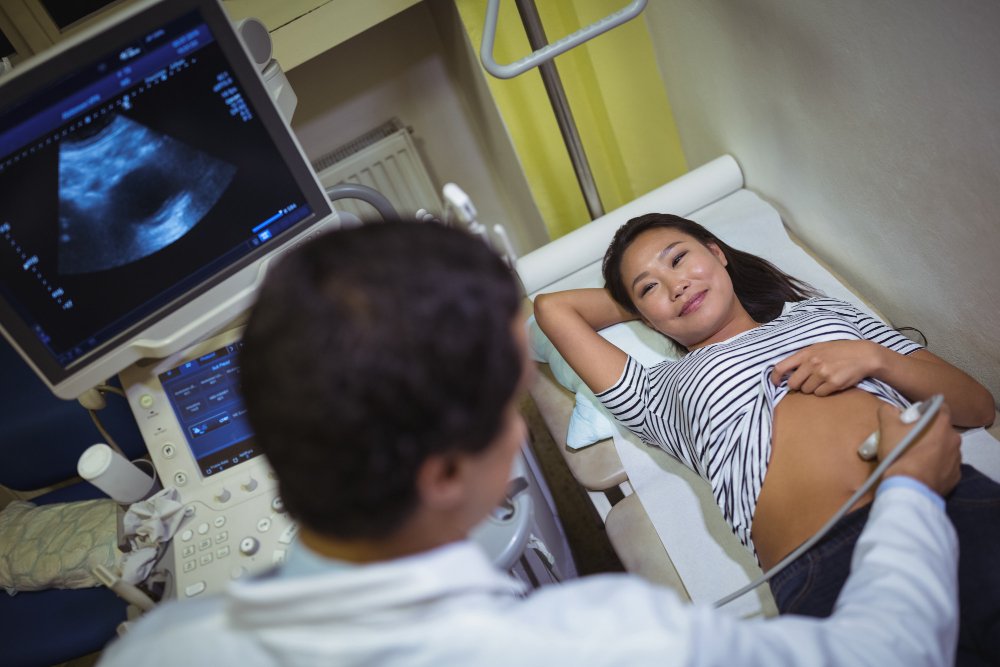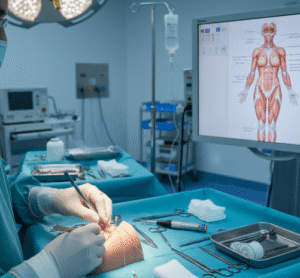South Korea is redefining what it means to experience pregnancy in the 21st century. With its world-class healthcare system, advanced medical infrastructure, and growing digital health industry, the country is leading a new era of prenatal care technology — combining science, innovation, and compassion to support mothers and babies from conception to birth.
From AI-powered ultrasounds to smart monitoring devices, Korean hospitals and startups are transforming how expectant mothers receive care, ensuring safety, precision, and peace of mind throughout every stage of pregnancy.
A New Era of Smart Prenatal Care
Prenatal care in Korea is no longer limited to periodic checkups. The focus is on continuous, connected, and personalized monitoring. With the integration of digital health technologies, doctors can now predict risks earlier, mothers can track fetal development in real-time, and hospitals can respond faster to emergencies.
• Smart devices and wearables: Portable fetal monitors and wristbands record heart rate, movement, and stress levels.
• AI diagnostics: Artificial intelligence analyzes ultrasound images with higher accuracy, detecting abnormalities earlier than ever before.
• Telemedicine platforms: Mothers can consult obstetricians remotely, receive test results, and get personalized recommendations from the comfort of home.
• Cloud-based health records: All prenatal data is safely stored and accessible through digital hospital systems, promoting seamless care between clinics and specialists.
The result is a more proactive approach to maternal and fetal health, powered by data and designed around the needs of every mother.
Advanced Ultrasound and Imaging Technology
Korea is recognized worldwide for its leadership in medical imaging — especially in obstetrics. Korean hospitals have adopted high-resolution 4D ultrasound systems that provide detailed, real-time images of the fetus.
• 4D imaging: Allows parents to see their baby’s movements, facial expressions, and development in incredible detail.
• AI-assisted analysis: Detects potential risks such as chromosomal abnormalities, heart defects, or developmental delays early in pregnancy.
• 3D mapping: Helps doctors evaluate the placenta and umbilical cord for proper blood flow and growth support.
Major hospitals like Seoul National University Hospital, Asan Medical Center, and Samsung Medical Center are also using machine learning algorithms to predict complications such as preeclampsia, gestational diabetes, or preterm birth.
Tip: These technologies not only improve early diagnosis but also give parents valuable emotional reassurance during pregnancy.
Non-Invasive Prenatal Testing (NIPT)
Korea has rapidly adopted Non-Invasive Prenatal Testing, one of the most significant breakthroughs in modern prenatal care.
• How it works: A simple blood test analyzes small fragments of fetal DNA circulating in the mother’s bloodstream.
• What it detects: Conditions such as Down syndrome (trisomy 21), Edwards syndrome (trisomy 18), and Patau syndrome (trisomy 13).
• Advantages: Safe, accurate, and performed as early as 10 weeks into pregnancy without risk to the fetus.
Many Korean women now choose NIPT as part of their routine prenatal screening, thanks to its reliability and accessibility through leading clinics and biotechnology companies like GC Genome and Seegene.
Smart insight: NIPT represents a powerful example of how genetic science and maternal care can merge to ensure healthier outcomes for both mother and baby.
Wearable and Home-Based Monitoring Devices
One of the fastest-growing trends in Korea’s prenatal technology sector is home-based monitoring. Pregnant women can now use smart sensors, mobile apps, and wearables to track vital signs daily — all synced with hospital databases.
• Fetal heart rate monitors: Portable devices let mothers listen to their baby’s heartbeat and detect irregularities.
• Smart pregnancy belts: Measure uterine contractions, fetal movement, and maternal breathing patterns.
• Blood pressure and glucose sensors: Detect early signs of hypertension or gestational diabetes.
• AI-powered mobile apps: Apps such as BabyTree and MomsCare Korea provide reminders, health tips, and emotional support communities.
This trend empowers mothers with real-time insights into their health and allows healthcare providers to intervene early if any warning signs appear.
AI and Predictive Healthcare
Artificial intelligence is revolutionizing how Korean doctors manage prenatal care. By analyzing large datasets from millions of pregnancies, AI can predict potential complications long before symptoms arise.
• Risk prediction: Algorithms evaluate patterns in blood pressure, hormone levels, and ultrasound data to assess the risk of preeclampsia or miscarriage.
• Automated charting: AI tools save doctors time by automating record analysis, enabling more personalized care.
• Machine learning models: Used to forecast labor timing and optimal delivery methods, reducing emergency interventions.
Hospitals like Yonsei Severance and Ewha Womans University Medical Center are testing AI systems that provide early alerts for pregnancy-related disorders, helping doctors tailor treatments for each patient.
Example: A recent Korean study found that AI models could identify women at high risk of preterm birth up to six weeks earlier than conventional screening methods.
Telemedicine and Remote Consultations
Telehealth has become a cornerstone of prenatal care in Korea, especially after the COVID-19 pandemic. Many expectant mothers now prefer virtual consultations for convenience and safety.
• Video consultations: Allow mothers to discuss symptoms and progress directly with obstetricians without hospital visits.
• Remote test result access: Patients can view lab results, ultrasound images, and doctor notes online.
• Digital prescriptions: Medications for prenatal vitamins, anemia, or blood pressure can be ordered digitally.
These systems are supported by Korea’s strong digital infrastructure and electronic medical record (EMR) networks, making prenatal care more accessible — even for mothers in rural or remote areas.
Integrating Mental and Emotional Health
Korean prenatal technology isn’t only about physical monitoring — it’s also about supporting emotional well-being. Expectant mothers can access mental health tools integrated into pregnancy apps.
• Mood tracking: Apps record emotional states and provide stress management exercises.
• Guided meditation and breathing programs: Help reduce anxiety and promote relaxation.
• Online counseling: Virtual therapy sessions connect mothers with licensed psychologists specialized in perinatal mental health.
Fact: Studies show that addressing maternal stress during pregnancy improves fetal brain development and reduces risks of postpartum depression. Korea’s digital wellness tools make this easier than ever.
Hospitals Setting the Standard
Several Korean hospitals are recognized for pioneering high-tech prenatal care programs:
• Samsung Medical Center – Uses AI-based fetal monitoring and 4D imaging for comprehensive prenatal assessment.
• Asan Medical Center – Runs one of Korea’s most advanced Perinatal AI Labs, studying preterm birth prediction and digital pregnancy tracking.
• CHA Fertility Center – Integrates prenatal genetic testing with advanced fertility treatments and maternal wellness programs.
• Seoul National University Hospital (SNUH) – Offers smart pregnancy apps that connect to the hospital’s cloud system for seamless care.
These institutions showcase Korea’s vision of connected, data-driven, and compassionate maternal healthcare.
Future Trends in Prenatal Technology
Korea continues to innovate in maternal and fetal medicine, with several promising trends emerging:
• AI-driven fetal imaging for automated anomaly detection.
• Smart maternity wear with embedded health sensors.
• Digital twins of pregnancies — virtual simulations for predicting health outcomes.
• Personalized nutrition and microbiome analysis for maternal gut health.
• Robot-assisted delivery systems and smart postpartum recovery devices.
These technologies will soon make pregnancy care in Korea even safer, smarter, and more supportive.
Final Thoughts
The latest prenatal care technologies in Korea are transforming motherhood into a guided, data-driven, and empowering experience. By merging artificial intelligence, biotechnology, and emotional wellness, Korean healthcare providers are creating a model of prenatal care that ensures both mother and baby thrive.
Korea’s innovation-driven approach proves that technology, when designed with empathy, can nurture life from its very beginning.













